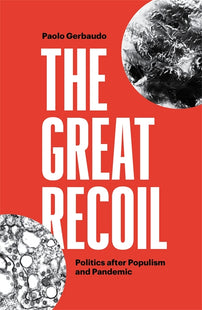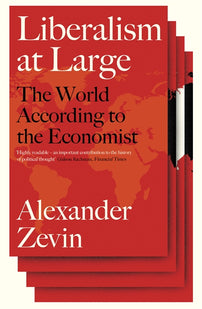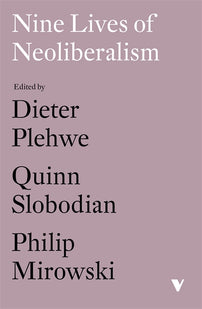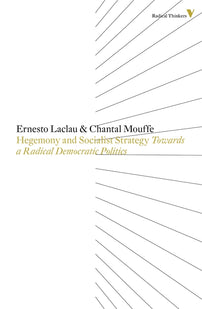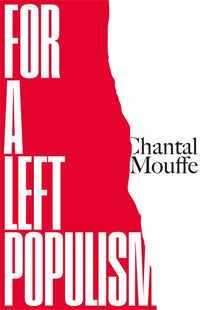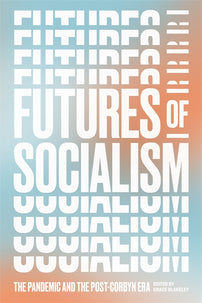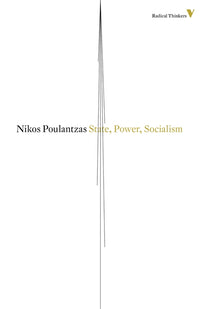Reckoning without the host: Can the Left afford to ditch the liberals?
How should the left position itself strategically vis-a-vis liberalism in this new political moment? Carlo Invernizzi Accetti on socialist strategy in Paolo Gerbaudo's The Great Recoil.

Carlo Invernizzi Accetti
The question of the relationship between liberalism and the left has historically been at the heart of the latter’s self-understanding, both conceptually and strategically.
In the immediate aftermath of the French Revolution, when the notion of the ‘left’ first acquired its political connotations, the two were indistinguishable. A rift began to emerge over the course of the nineteenth century, as burgeoning labor and socialist movements challenged many of liberalism’s core principles. During the twentieth century, liberals and socialists then oscillated between periods of “popular front” alliance against fascism and reciprocal opposition dictated by the logic of the Cold War.
For a brief time in the wakeof the Cold War, the nature of their relationship seemed to have lost its urgency because of the collapse of the main existing alternatives to liberal capitalist regimes. Today, however, it is once again deeply relevant in light of the resurgence of various forms of far-right mobilization, which attack both liberalism and the left with equal vigor.
Paolo Gerbaudo’s The Great Recoil offers a compelling way into this set of issues, based on a comprehensive analysis of the present political configuration and a bold proposal for renewal of the left’s stance within it. The book’s main thesis is that the “neoliberal framework” which dominated the politics of advanced western democracies for the better part of the past four decades is now crumbling. In its place, we are witnessing the rise of a “neo-statism” whose core elements include: a normative revaluation of the notion of sovereignty; a renewed focus on the desirability of mutual protection from a variety of new (and not so new) dangers; and a democratic reappropriation of the means of social control.
This form of neo-statism is said to be susceptible to different political determinations. In particular, Gerbaudo distinguishes a right-leaning “proprietarian protectionism” characteristic of contemporary nationalist populism, from a left-leaning “social protectivism”, which he associates with the recent revival of various forms of democratic socialism. Thus, for him, the key political struggle of the present is between the nationalist far-right and the socialist far-left, over the specific type of neo-statism we are all inexorably moving towards.
In terms of political strategy, this translates into an invitation for the left to stop courting electoral and political alliances with “liberal centrists”, whom Gerbaudo views as still committed to a defense of the dying neoliberal order. Instead, he suggests that the left should directly challenge the far-right on the terrain of neo-statism, by championing its own versions of the principles of sovereignty, protection and control. This is the core of his vision for a “socialism that protects”.
In what follows, I will raise a few questions of Gerbaudo’s analysis and proposal, aimed at suggesting that the left may not want to ‘ditch’ either liberals or liberalism quite so promptly. I should make clear, though, that these questions are meant in a spirit of genuine appreciation of his incisive arguments and clarity of purpose. It is because the problems posed by his book are so pressing and important that I invite further probing into them.
I begin with some empirical considerations. Is liberal centrism as historically obsolete and electorally irrelevant as Gerbaudo makes it out to be? His book reminds us that liberalism’s demise had already been predicted several times in the past, both recently and not so recently. For instance, at one point, Gerbaudo cites Steve Bannon, suggesting he was “not too far off the mark [in 2016] when he said that the defining political fight of our times is between the nationalist populism represented by Trump and his European allies and the socialist populism he identified with Jeremy Corbyn and Bernie Sanders” (p.24).
[book-strip index="1" style="display"]With the benefit of hindsight, things appear to be taking a rather different turn. In the United States, the 2020 Presidential election did not yield the (equally sought-after and dreaded) showdown between Trump and Sanders. The faction of the Democratic Party that emerged victorious with Joe Biden clearly and explicitly stood for a form of liberal centrism. Similarly, in France, the upcoming Presidential election is shaping up as a contest between the resolutely centrist Emmanuel Macron and either Marine Le Pen’s or Eric Zemmour’s versions of far-right nationalism. Jean-Luc Mélenchon’s brand of left populism trails a distant fourth in all available polls.
In Germany, too, the recent Parliamentary elections did not confirm the overarching pattern of “radical polarization” which is at the heart of Gerbaudo’s analysis. Both the far-right Alternativ für Deutschland and the far-left Die Linke lost significant shares of support and now Social Democrats are in coalition talks with the Liberals and the Greens. Even in Italy – which is one of Gerbaudo’s main cases of reference – his empirical predictions do not appear to be corroborated by what is actually going on. The revival of a socialist far-left is here lagging to say the least. And the main bulwark against far-right populism is offered by an unexpectedly resilient liberal center, which has found a formidable champion in Mario Draghi’s inclusive and compromising style of politics.
In light of these developments, isn’t Gerbaudo ‘reckoning without the host’ in anticipating a decisive battle between the far-left and the far-right, predicated on an imminent demise of liberal centrism? Nor is this just an empirical question. At a normative level, I wonder whether Gerbaudo’s vision for a “socialism that protects” is as attractive as he supposes. One way of getting into this is to note how surprisingly undialectical his case for it turns out to be.
Even though the metaphor of a “Great Recoil” alluded to in the book’s title is ostensibly drawn from Hegel, the main historical transition it envisages amounts to a mere “inversion” of neoliberalism. The latter is said to have been an “exo-politics” that made a fetish of openness and free movement, whereas neo-statism is described as an “endo-politics” which accepts a certain measure of closure from the outside, in order to focus on rearranging power relations within the polity.
In Hegel’s terms, this constitutes a purely “abstract” negation, since there is no further determination or “sublation” of what is being negated. My concern is that this may end up cutting off Gerbaudo’s vision for a “socialism that protects” from important normative resources on which the left has historically relied. Here, I will indicate three such potential issues, as an invitation for Gerbaudo to elaborate his views on these matters.
The first refers to the concept of freedom, which is strikingly almost never discussed in Gerbaudo’s book. The few times it is mentioned occur in the context of denunciations of the social dislocations supposedly wrought by neoliberalism’s commitment to the idea of a “free market”. Does this imply Gerbaudo is willing to concede the value of freedom entirely to his political opponents while arguing that the left should focus on sovereignty, protection, and control instead?
As he points out, these three concepts have historically received their most sustained elaborations in the work of thinkers for whom the value of freedom has been of little import. The most obvious example is an author discussed in far greater detail than Hegel in Gerbaudo’s book: Thomas Hobbes. As Gerbaudo notes, Hobbes’ political philosophy revolves entirely around the goal of protecting human beings from danger and fear, through the means of sovereignty and control. In this sense, his vision for a “socialism that protects” appears more Hobbesian than Hegelian.
To be sure, Gerbaudo also recognizes that, in the Hobbesian bargain, “protection involves an act of subjugation, a domination of the powerful over the powerless, of the sovereign over the subjects, of the protector over the protected” (p. 115). However, all he responds is that: “Current political dilemmas require that this libertarian critique of power, bordering on statophobia, be overcome … There is no way to address present challenges without a recovery and democratization of top-down control” (p.129).
I wonder how much room this leaves for a positive appreciation of the value of freedom – and indeed whether that can be acceptable for a political tradition that has historically understood itself as an attempt to make good on the French Revolution’s promises of freedom, equality and fraternity (not sovereignty, protection and control).
A second potential shortcoming of a vision for the left defined merely by opposition to (neo)liberalism concerns the value pluralism and the connected demands for recognition and inclusion currently advanced by marginalized identity groups in a variety of social and political contexts. Given the salience and pervasiveness of such issues in contemporary politics, it is striking how little attention Gerbaudo devotes to them, especially for a book that aims to “make sense of the present.”
This is not an oversight. Just like the concept of freedom, Gerbaudo assumes that all forms of identity politics are part and parcel of the “neoliberal horizon” and therefore constitute a distraction from what he takes to be the only truly significant political struggle – which is that over the economic distribution of material resources. With respect to the Black Lives Matter protest movement, for instance, he writes that: “The disingenuous subtext of the edifying neoliberal discourse of openness and defense of minorities is the priming of private power and the freedom of enterprise over democracy” (pp.86-87).
[book-strip index="2" style="display"]The language of a “subtext” here betrays an old left reflex of reducing cultural and symbolic issues to presumptively more fundamental material ones. But is this all the left can say about the struggles for racial (but also gender) emancipation that have been erupting seemingly everywhere over the past few years? To the extent that these protest movements are bearers of progressive demands for symbolic – as well as material – redistribution, it would seem that a more productive role for it would be to interpret and channel their aspirations in a truly emancipatory direction, rather than merely dismiss them out of hand because they do not appear to fit into the dubiously ‘universalist’ categories that are part of what is being challenged in the first place.
Finally, a third potential issue stemming from Gerbaudo’s conception of the relationship between liberalism and the left concerns the notion of progress, understood as a normative orientation towards an ideal of full human emancipation, to be realized within the horizon of human history. This has historically been a core component of the left’s political outlook, whether in the form of a gradualist aspiration towards reform, or revolutionary demands for sudden and radical change.
Neither is to be found in Gerbaudo’s vision for a “socialism that protects”. Once again adhering more to Hobbes than Hegel, he assumes that politics is about the perpetual management of emergent social “dangers” and “fears”. It seems there is therefore no room for hope, understood as the aspiration towards a radically better state of affairs, within the framework of his vision for the left.
Seen in this light, it is not surprising that in the few instances where a frontal challenge actually took place between the nationalist far-right and a socialist left of the type Gerbaudo envisages, the far-right consistently emerged victorious. In 2012, Jean-Luc Mélenchon decided to force precisely such a challenge, by contesting Marine Le Pen’s parliamentary seat in the Pas-de-Calais district. He lost by over 20 percentage points. In the run-up to the Brexit referendum in the UK, there were some on the left who believed a Leave vote would lay the grounds for a stark choice between a far-right nationalist and a far-left socialist vision for the future of the country. It should by now be clear which of the two has “taken back control”.
Nor should this be a surprise. When the left chooses to skip over the liberal center and confront the far right on its own terrain, it is by definition at a disadvantage. So, maybe, the strategy of forming a common front between socialism and liberalism isn’t as misguided or obsolete as Gerbaudo makes it out to be, especially as a bulwark against the far right.
The idea of a “liberal socialism” was in fact first theorized by Carlo Rosselli in the 1920s, precisely as an antidote to the rising tide of fascism. Its stated intention was to preserve the normatively valuable historical contributions of liberalism, while at the same time moving beyond it, by radicalizing and generalizing the freedoms and material acquisitions liberalism had so far only made available for a minority. In this sense, it constituted a truly dialectical attempt at overcoming the limitations of a liberalism devoid of socialist aspirations.
Arguably, there are also some strands of contemporary politics that are attempting something similar today. This may, for instance, be one way of reading the Biden administration’s attempt to hold together the democratic socialist and liberal centrist factions of the US Democratic Party through an ambitious agenda of public investment in a variety of social fields. The Spanish coalition government between the country’s historic center-left party and the more left-leaning Podemos is doing something similar, while the ongoing negotiations in Germany between the Social Democrats, the Liberals, and the Greens also portend a significant leftward shift in the country’s political direction.
Crucially, none of these contemporary political projects has set itself in opposition to liberal centrism. On the contrary, they all seek to integrate a fundamental commitment to basic liberal values with more radical socialist aspirations. My last question, then, is whether this makes such political projects incompatible with Gerbaudo’s vision for a “socialism that protects”, or whether there is room for some kind of common cause between them?
Carlo Invernizzi Accetti
City University of New York
